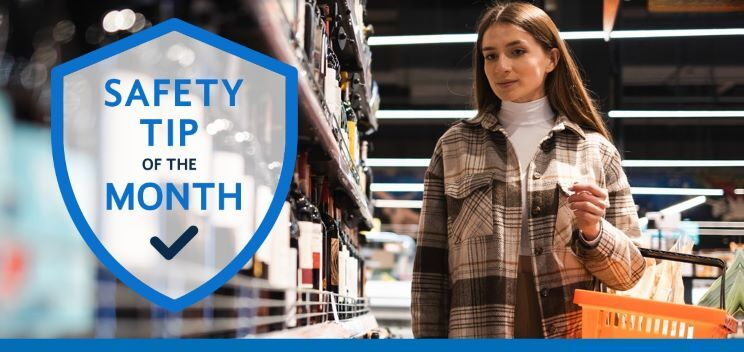Alcohol sales are big business. They can also be a big risk. To avoid fines, license suspension and other penalties, grocery stores need to train their teams how to sell alcohol safely.
Underage Drinking
The legal drinking age in all states in the U.S. is 21. Of course, this doesn’t stop minors from trying to buy alcohol. A study published in the Journal of Studies on Alcohol and Drugs found that underage consumption of alcohol accounted for $17.5 billion in sales in 2016, out of $237.1 billion total sales.
If a retailer is caught selling alcohol to minors, state law will determine the penalties. There will usually be a fine. The business may also lose its liquor license, and in some cases, there may even be criminal charges and jailtime.
Most retailers that sell alcohol are aware of the laws and have policies in place to card customers and refuse alcohol sales to minors. However, as the study on underage alcohol sales shows, these policies don’t always work:
- Underage individuals may use fake IDs or IDs belongings to someone else.
- A busy clerk may glance at an idea without actually examining it closely.
- The clerk may miscalculate the customer’s age.
- A clerk may incorrectly think a customer looks old enough and decide not to card.
If your workers don’t take these laws seriously, they may start paying more attention once they learn that it’s not just the store that can get into trouble. According to WSOC-TV, a store clerk in North Carolina was recently arrested for selling alcohol to a teen who then got into a crash.
Dram Shop Laws
In many states, businesses can be held liable for overserving alcohol to an individual who goes on to cause injury or death. These so-called dram shop laws often apply to bars and restaurants, but they can also apply to retailers that sell alcohol. According to the National Conference of State Legislatures, at least 30 states have these laws on the books.
Blue Laws and Other Sales Restrictions
Some states and counties place restrictions on alcohol sales. For example, some states don’t allow grocery stores to sell hard liquor, though wine and beer sales will typically be allowed. Other states place restrictions on when alcohol can be sold. Often call Blue Laws, these rules may prohibit alcohol sales on Sundays and certain holidays. There are also so-called dry counties where all alcohol sales are prohibited.
Age of Employee
It’s not just the age of the customer that matters. It’s also the age of the employee.
State law varies widely, and the age requirements can be different for on-premises sales versus off-premises sales, and for wine, beer or spirits. According to the National Institute on Alcohol Abuse and Alcoholism, workers need to be 21 to handle off-premises alcohol sales in Delaware. In Connecticut, the age requirement is 15 for beer but 18 for wine or spirits. In Washington, the minimum age is 18, but the manager or supervisor must be present.
On-Premises Consumption
Grocery sales for alcohol usually involve off-premises consumption, but on-premises consumption may also occur. This can happen when grocery stores have dining areas where alcohol is served. The liquor license requirements and rules can be significantly different, so grocery stores should proceed with caution.
Issues can also arise when alcohol is consumed on-premises without permission, for example, in the parking lot. This can lead to liability issues for the business. For example, in Washington, the holder of a liquor license is responsible for any areas under their control and cannot allow disorderly conduct. If a fight breaks out in the parking lot, the business can be held responsible.
Alcohol Delivery
Delivery sales have increased in recent years, fueled in part by the pandemic, and this includes alcohol sales. According to Rabobank, online grocery and marketplaces grew 271% between 2019 and 2021, and online alcohol sales in the U.S. reached $6.1 billion in 2021.
Online alcohol sales offer a large revenue potential, but there are risks involved. For starters, it may be easier for customers to lie about their age or use a fake or borrowed ID when they are not shopping in person. Additionally, people who are already intoxicated may purchase more alcohol.
However, policies can be implemented to reduce these risks. The Progressive Grocer says that DoorDash is rolling out new policies to keep alcohol deliveries safe. Customers will need to be present when alcohol is delivered, and the Dashers will scan the customer’s ID to verify their identity and check for signs of intoxication before completing the delivery.
By training your team to sell alcohol safely, you can enjoy alcohol sales revenue while avoiding legal issues. Download our Selling Alcohol Safely Tip Sheet for more tips.
Have questions about grocery store insurance and risk management? We can help! Contact Joe or Melissa today.
Joe Scarpello Melissa Johnson
253.444.5584 253.444.5654
Email Email


